Türkiye has urged the European Union to work with non-EU member countries to ensure its security amid uncertainty in relations with the U.S.
“It’s vital that Europe increase its coordination with non-European Union member countries to build its new security model,” Foreign Minister Hakan Fidan told his French counterpart Jean-Noel Barrot in a meeting in Paris on Wednesday.
Turkish diplomatic sources said Fidan and Barrot discussed bilateral and regional issues in detail in the Paris meeting.
Fidan also expressed Türkiye’s expectations from France about removing “artificial” obstacles to Türkiye-EU relations and for the bloc to take concrete steps in this direction, according to diplomatic sources.
The issue of updating the customs union was also discussed.
Türkiye has been a candidate for EU membership for over two decades, but talks stalled in 2016 over what Ankara says is the bloc’s “insistence on politicizing the issue.”
Fidan reportedly reiterated Türkiye’s support for diplomatic efforts to end the Russia-Ukraine war and emphasized the importance of all NATO allies working in close coordination for said efforts.
Fidan stressed that the consent of both warring sides is required for a possible solution to be permanent, sources said.
Türkiye, with NATO’s second-largest army and a Black Sea coastline, is looking to play a key role in Europe’s security after Washington’s pivot away from the region. After rounds of crisis talks on Ukraine and security following Washington’s change of policy, Ankara has been quick to warn that European defenses cannot be ensured without its involvement.
“It is inconceivable to establish European security without Türkiye,” President Recep Tayyip Erdoğan said last month.
In recent years, Türkiye has considerably developed its defense industries, with exports growing by 29% to reach $7.1 billion (TL 269.88 billion) in 2024, placing it 11th in global defense exports.
Fidan also emphasized to Barrot that increasing engagement with the new administration in Syria and completely lifting sanctions is important for establishing stability and peace in the country.
Fidan conveyed to Barrot Türkiye’s expectations regarding cooperation in the defense industry and underlined the importance of the fight against the PKK/YPG terrorist organization.
Fidan noted that foreign terrorist fighters from Daesh in prisons and camps in northern Syria should return to their countries.
Israel’s escalation in Gaza
Fidan and Barrot also discussed the latest situation in Gaza, sources said.
Israel’s increasing attacks on the blockaded enclave could cause regional instability, Fidan warned, reiterating that Türkiye is resolutely against the forced displacement of Palestinians from their homeland.
Fidan expressed his support for the Gaza plan adopted by the Arab League, noting the humanitarian crisis in Gaza, which he said was worsened by Israel’s obstruction of aid flows.
The two ministers also discussed efforts to ensure peace and stability in the Caucasus where they back opposing sides, Azerbaijan and Armenia, in their decades-old conflict over the Karabakh region.
Fidan and Barrot evaluated steps that could be taken to strengthen economic relations and cooperation opportunities in energy.
It’s wrong to “apply double standards” when discussing recent developments in Türkiye, Fidan told Barrot, emphasizing that as in France and Romania, “the completion of judicial processes should be waited for.”
Türkiye has the longest history with the union and the longest negotiation process. The country signed an association agreement with the EU’s predecessor in 1964, the European Economic Community (EEC), which is usually regarded as a first step to eventually becoming a candidate.
Applying for official candidacy in 1987, Türkiye had to wait until 1999 to be granted the status of a candidate country. The process involved opening and then provisionally closing individual chapters, each representing a specific policy area, upon fulfilling the established criteria.
By 2016, only 16 out of the 35 chapters had been opened, and only one had been provisionally closed. By 2018, the accession talks reached a standstill.
The EU expressed dissatisfaction with what it viewed as a lack of progress on key issues, while Türkiye criticized what it perceived as double standards and a lack of commitment from the EU. This resulted in a de facto suspension of the accession process, leaving the future of Türkiye’s EU membership in a state of uncertainty.




























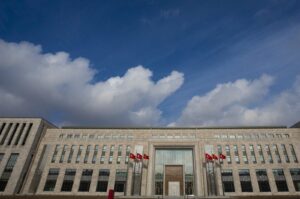

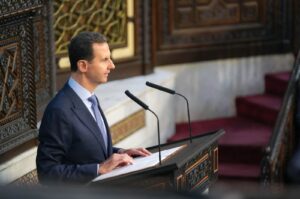
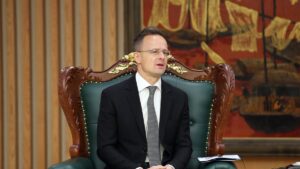
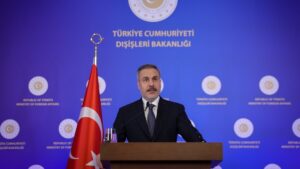



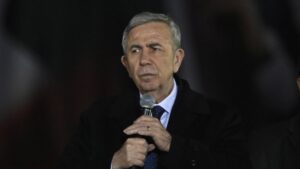

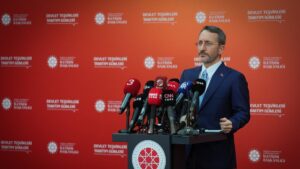





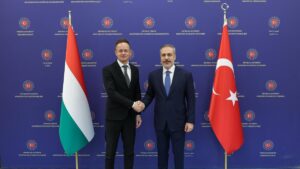



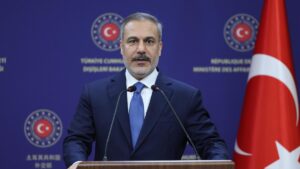
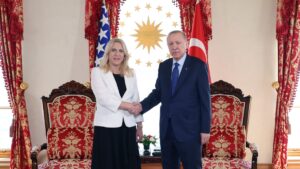
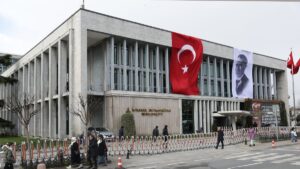

Be First to Comment